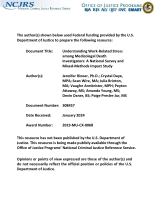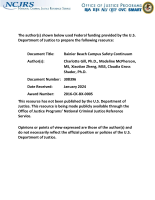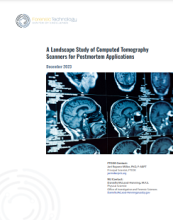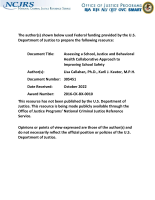Factors that Facilitate and Hinder Implementation of a Problem Oriented Policing Intervention in Crime Hot Spots: Suggestions to Improve Implementation Based on a Field Experiment
Journal
Police Quarterly
Date Published
June 2024
Agencies
NIJ-Sponsored
Publication Type
Research (Applied/Empirical)







